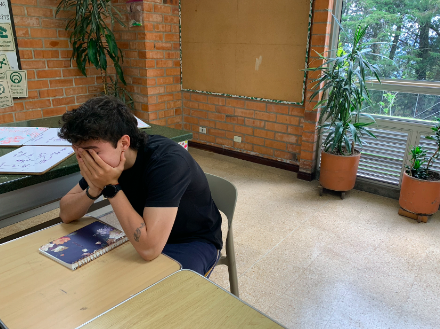Mental Health Issues Debated in Human Rights Council
The Human Rights Council considered repercussions and solutions of enforced or involuntary disappearances on persons with mental health problems in their Friday and Saturday sessions.
According to information presented, studies demonstrate that people with mental illnesses are more likely to fall into crimes and acts that are outside of the law.
“We have to address the issues that come along. It’s not only disappearances, we need to treat all mental illnesses in order to improve society,” Simon Aristizabal, delegate of China, said.
Many solutions were offered by different delegations with the goal of providing victims of enforced disappearances and their relatives appropriate assistance.
“The best way to solve these issues is by educating and creating social awareness,” Tomas Diez, delegate of Yemen, said.
Other delegations, including France, United States, Russia, Argentina, and Trinidad and Tobago, argued that social awareness is not enough to prevent or solve this ongoing problem.
“Social awareness is not enough. Protection of the victims and their relatives is important. Even though they are aware and they are told often to be careful, there are many different contexts for why a person disappears. The state should provide all needs to families including economic support, mental health services, and protection search teams are the solutions,” Pablo Orozco, delegate of Russia, said.
The South Korean delegation then went on to explain how in countries such as North Korea, the government doesn’t recognize mental illness. This is why the North Korean citizens run away to countries such as China. As North Koreans don’t have the papers needed in order to receive health care, South Korea expresses their unwanted desire for another civil war.
“Mental health issues are different from mental illness, as these do not exist,” Camilo Sorno, delegate of North Korea, said.
South Korea and other delegations argue that there is scientific proof that mental illness do exist and have cures.
“Mental illness will not go away on its own. Untreated mental illness can become physical illness. If there is a way to prevent those, why shouldn’t these be approached? We must help victims and relatives overcome this experiences,” Andrea Perez, delegate of Peru, said.
The delegations then proceeded to create working papers, none of which were approved in the session.
“There are no excuses. We can not tolerate excuses. This delegation wants to remind the whole Human Rights Council that we are supposed to strive for the rights of citizens and their mental health, this delegation will enforce it, so people can have the appropriate care. This delegation knows knows that some delegations don’t think mental illness doesn’t exist, but if there is a cure for such, why not cure it?” Isabela Arboleda, delegate of the United States, said.

























